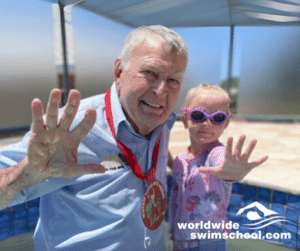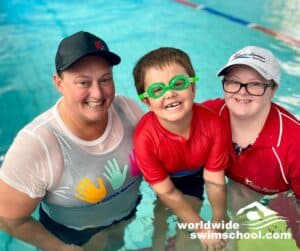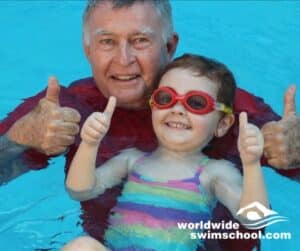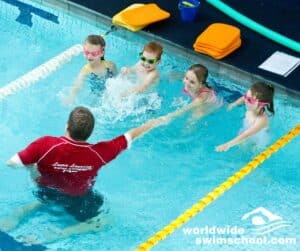Children are great at basic swim skills. Streamline floating, fast kicking, and long accelerated paddling down the centreline, leads to a great swimming technique, at an early age. But, have you ever wondered what should be included in swimming lessons for my 3-year-old.
Importance of Parental Involvement
During 3 to 4 years of age, children become very capable, and confident, in their swimming ability. Even so, it is important that parents, and swimming teachers, do not underestimate the value of parental involvement, and supervision, during the swimming lesson. Parental involvement in the swim lesson allows for a safe and secure learning environment, maximum swim practice time, and continual direction and attention. This one-on-one attention is essential to develop children’s optimal swimming potential.
Swimming lessons for my 3-year-old, should include learn to swim activities that concentrate on building basic swimming skills that lead to good freestyle and backstroke technique. If we perfect basic swimming skills, such as streamline floating, fast kicking and long accelerated paddling down the centreline, we build strong foundations, and set children up for a great future with their swimming techniques.
A Positive Experience for Both Parent and Child
So, how should you be helping your 3-year-old in the water? There are a number of skills that you need to understand and learn how to teach important elements of the learn to swim process, even if you are a parent.
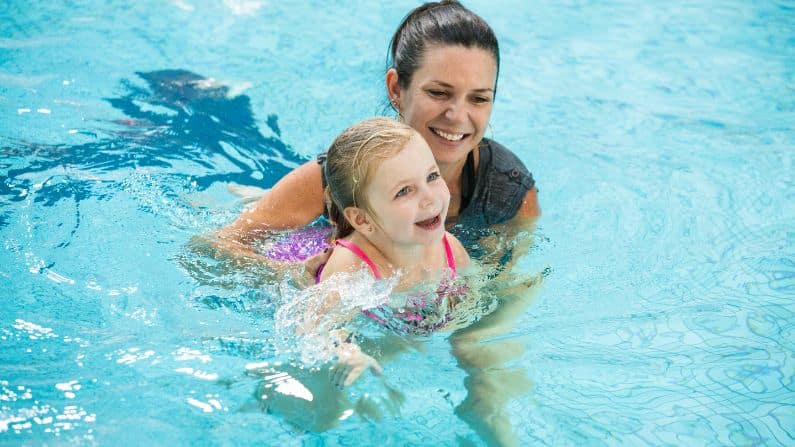
Important Skills You Should Know
Learn about the important skills that should be included in swimming lessons for my 3-year-old
Watch this Video
Well done, that is the first step to being better prepared and equipped with the knowledge and skills to assist your little one through to becoming a confident and happy little swimmer.
Read more on why children should learn to swim early on.

